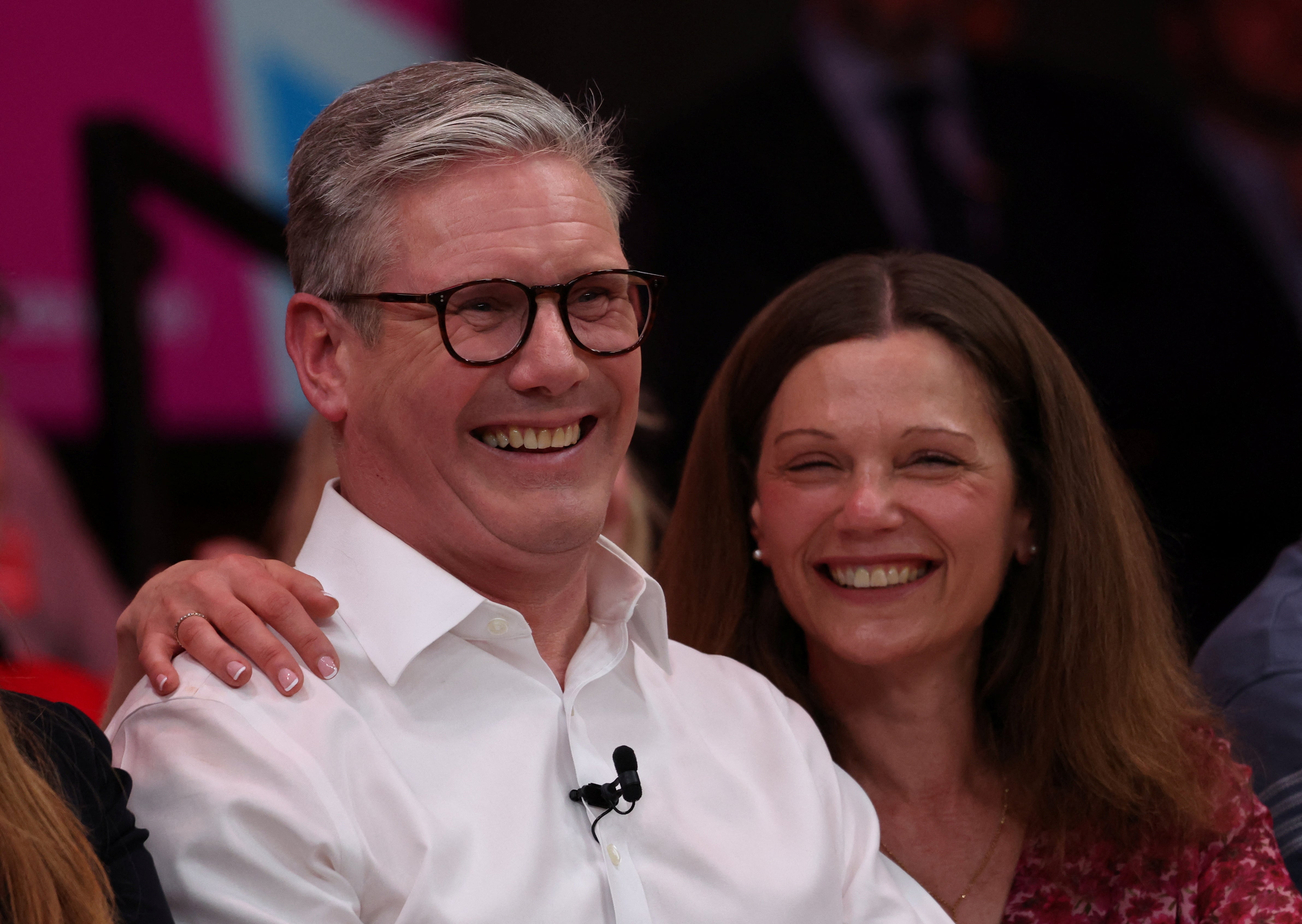A minister for WAGs: Seriously, that’s what the next government needs…
No, I’m not calling for a minister for footballers’ partners – but women and girls must be at the heart of policymaking for the incoming government, writes Hannah Fearn


Keir Starmer has made it clear, in no uncertain terms, that it’s time for “change”. The Labour leader seemingly hasn’t been pictured for weeks without the word on a placard behind him. It’s on leaflets, on buses, hell, it’s in every sentence that comes out of the mouths of the shadow cabinet.
Well, for 51 per cent of the country, there is an essential change that he should make as soon as he gets the keys to No 10: he needs to appoint a cabinet level minister representing women and girls.
There has been a ministerial job for women for some time, but it has so far always been wrapped in with other equalities briefs and tacked onto other roles too.
It has never had its own place at the cabinet table. That is not good enough.
Every single piece of policy that is passed by the government – from planning rules to prison policy, social care funding to education reform – is approved without any discussion about the unique impact it might have on women.
We saw the devastating impact of that during the pandemic, when lockdown rules were introduced without sufficient thought about how women’s lives would be altered or, in some cases, destroyed. There was no plan for women enduring domestic violence. There had been no meaningful discussion about what it means to try to work from home with young children in the house, or while also homeschooling bewildered teens who’d rather be anywhere else.
As a parent of young children, the case of Siobhan Murphy, whose baby Eddie crawled outside and died after falling into the family’s hot tub while his mother was trapped on a video conference, haunts me daily; I know just how easily a tragedy like that could have happened to any of us.
In recent years much of my reporting and commentary has highlighted the way policies made in Whitehall offices often fail women in the homes and communities where they are enacted.
Single women, for example, are at the sharpest end of the housing crisis because their incomes are even less likely to cover spiralling rents than their male counterparts, and achieving a mortgage offer is becoming even more difficult for them. Decades of research tells us that prison is an unsuitable place for many women found guilty of a crime, and yet we do too little to mitigate that. The result is that young women in prison are self harming at shockingly high rates.
Closures of community services such as Sure Start over the last 14 years have impacted directly on female lives, and particularly mothers. For young mothers, they were often the difference between isolation and friendship, between inspiration and depression. Through their children, the legacies of those decisions last for decades. Rishi Sunak’s plan to save nurseries actually had the opposite effect: thousands are now stumbling towards imminent closure leaving women forced to choose between work or family life.
Women were always more likely than men to claim support through the benefits system at some point in their lives but that likelihood is now increased. As the social care system has fractured and NHS waiting list lengthened, the heavy load of care work is falling disproportionately on their shoulders. Every single decision taken at the Department for Work and Pensions affects women’s lives more than men. And these are just a handful of examples.
It shouldn’t be this way, and it needn’t be. In June, the charity Agenda Alliance wrote a letter to all parties calling for a secretary of state for women and girls in the next cabinet, backed by 55 voluntary sector organisations.Not one party leader has responded to the demand. Starmer needs to show he can do better.
We are, most likely, heading into an era where the cabinet table itself will be more evenly balanced between the sexes. That’s welcome, but by itself it isn’t enough to overcome decades of inbuilt female blindness in the process of policy making.
Starmer wants to show quickly that his premiership marks a fresh start for Britain. Demonstrating that we matter in everything this government does will be a perfect way to demonstrate we’re now in a new political era.






Join our commenting forum
Join thought-provoking conversations, follow other Independent readers and see their replies
Comments